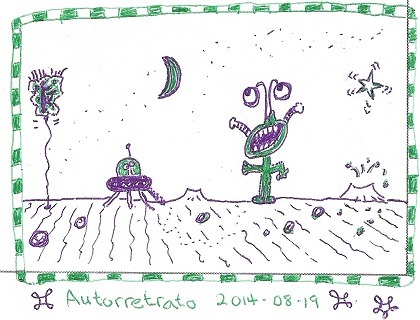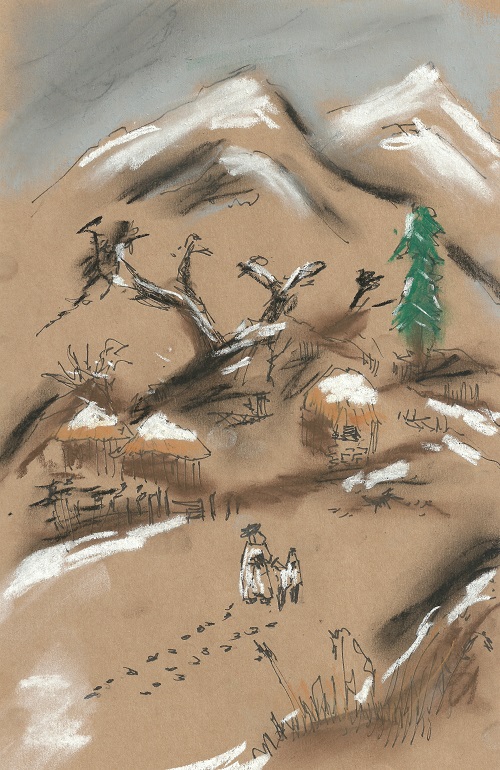EL HOMBRE DE GRIS
Este es el poema en el que existe un hombre sentado, un hombre que está vestido de gris, que viaja a visitar a otro hombre que ni siquiera conoce, a un hombre que también ha tomado el tranvía y viaja a su encuentro y que va pensando lo mismo que el otro hombre de gris.
Este es el poema donde existen dos hombres sentados, los dos han amado, los dos han sufrido, los dos han tomado el tranvía, se ignoran, no saben que ambos viajan al encuentro de un hombre vestido de gris.
Este es el poema donde existen tres hombres sentados, tres hombres que hablan de un hombre que habrá de venir, un hombre que vestido de gris estará esperando el tranvía sentado en un banco no muy lejos de aquí.
Este es el poema en que cuatro hombres sentados se miran, pero ninguno se atreve a pronunciar la palabra, la misma palabra que está ardiendo en sus labios desde el instante preciso en que cada uno de ellos se decidiera a venir.
Esperan, aguardan a un hombre que aún no ha tomado el tranvía, un hombre que está abriendo el armario y saca su traje y se ve en el espejo vestido de gris.
– Juan Carlos Mestre (poeta español, b 1957)
Translation, by the author
THE MAN IN GREY
This is the poem in which a man is sitting, a man who is dressed in grey, who is travelling to meet another man he doesn't even know, a man who's also taken the tram and is heading to this meeting and who's thinking the same thoughts as the other man in grey.
This is the poem in which there are two men sitting, both of them have loved, both have suffered, both have taken the tram, they do not know each other, nor do they know that both of them are heading towards a meeting with a man dressed in grey.
This is the poem in which there are three men sitting, three men who ate all speaking of a man who is to come, a man who, dressed in grey, will be waiting for their tram, sitting on a bench not very far from here.
This is the poem in which there are four men sitting and looking at one another, but none of them dares say the word, the same word that's been burning on each of their lips from the very moment each one of them decided to come.
They are waiting; they are waiting for a man who has not yet taken the tram, a man who is opening his closet and taking out his suit and looking in the mirror at a man dressed in grey.
[daily log: walking, 5.5 km]


